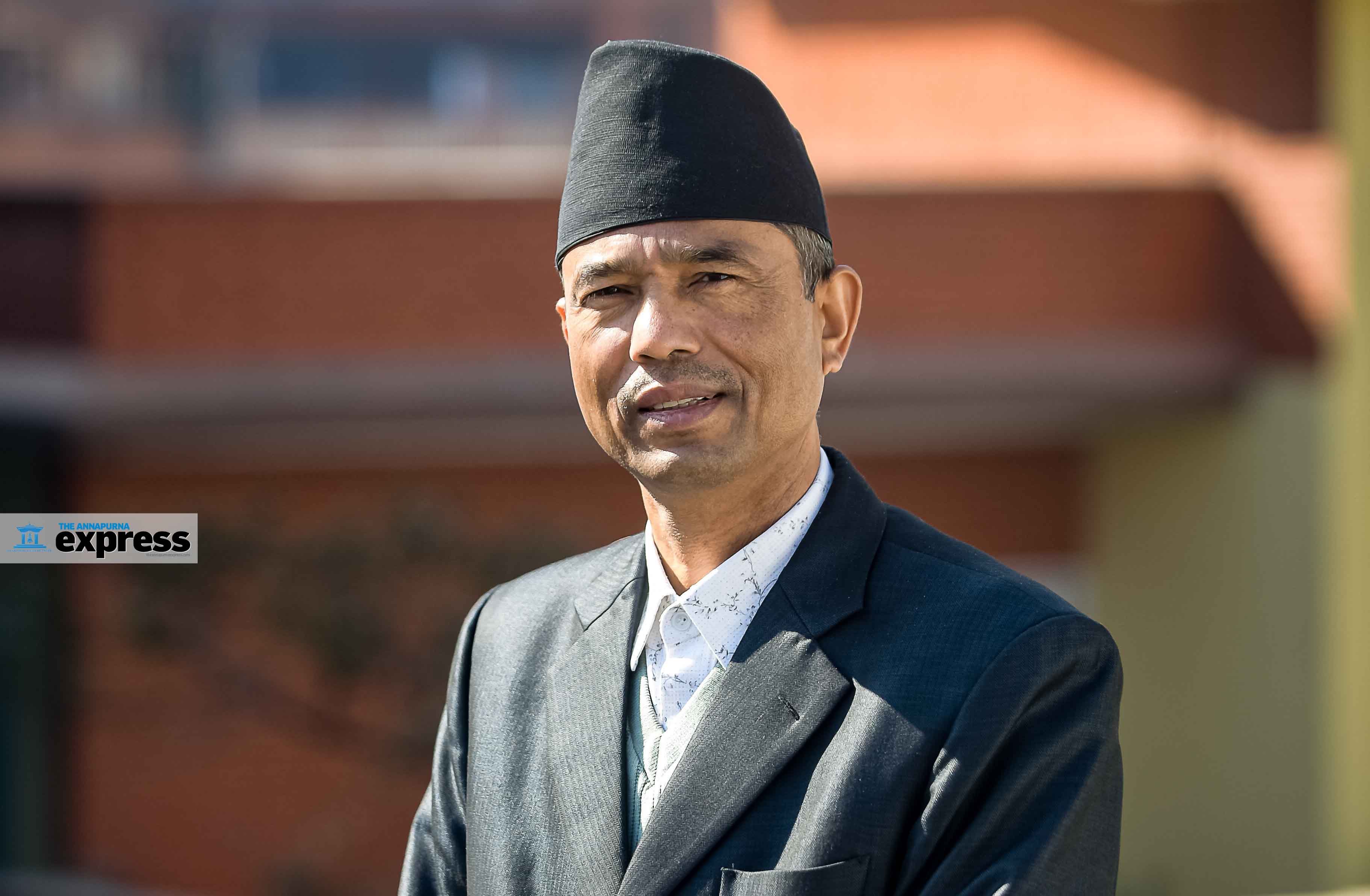The Tharu Commission is provided for in Part 27, Article 263 of the Constitution of Nepal. The Tharu Commission Act, 2017 has been enacted by the parliament incorporating topics like the qualifications of the chairperson and members of the Tharu Commission, status of vacancies, remuneration and service conditions, duties and rights. Bishnu Prasad Chaudhary was nominated the first chairperson of Tharu Commission four years ago. Pratik Ghimire of ApEx caught up with Chaudhary to know about the progress that the commission has made so far.
What are the major working areas of the Tharu Commission?
Our major work is to conduct research on the Tharu community, culture, food, language and all Tharu identity-based issues. We also research problems facing the Tharu community like health, employment and education. The commission regularly conducts awareness programs, skill- and education-based training and workshops for the welfare of the community. Moreover, we study plans and policies of the government and offer suggestions.
Does the government implement your recommendations?
I must say no. The government, to date, has not endorsed our suggestions. It has a major role to make our work effective, meaning that without coordination from the federal government, we can’t even be a proper watchdog. Everything we do, or we require (human resources and budget) to run the office is associated with the government.
For research activities, we need a huge budget, which we don’t have. For example, data are the foremost requirement for any research but due to the lack of budget, we can’t collect data on our own, so we have to rely on secondary sources. These sources are neither reliable nor accessible. We regularly recommend the government on law and policy making, but they don’t listen. This doesn’t mean these commissions should get executive powers. The duties, responsibilities and rights that the constitution provides us are enough. The problems lie with the government. It must heed our suggestions, and provide us human resources and the budget.
How is the coordination of the commission with three tiers of the government?
Though we work with all three tiers of the government, we are in touch mainly with local and federal governments. For training and workshops, we coordinate with respective local governments while for policy-making, we consult with the federal government. As we have our main office in Kathmandu and no liaison office outside, it's quite difficult to coordinate, both with the government and the people.
These commissions don’t have executive powers. In light of ongoing debates about their relevance, do we really need them?
Without these commissions, there will be an identity crisis. In the public service field, Tharu communities were included in the Madhesi cluster after the 2007 revolution. At that time, the Tharu communities had no idea about this. After coming to know about the matter, they protested which resulted in the Tharu revolution—and establishment of the Tharu Commission. The commission has outlined identity-based problems and often warned the government and concerned bodies about the consequences of ignoring them.
Thanks to this, the Tharu cluster is determined for political representation in the Election Act. The Civil Service Act has not incorporated these issues. The Madhesi Commission and the Madhesi leaders have always wanted Tharu and Muslim communities included in their cluster, but we stand firm against it. We have our own history, culture and identity. We won’t let this die down.
How often do you coordinate with other commissions?
We have met with the Madhesi Commission a couple of times for problem identification and resolution of cluster issues. But they don’t want to coordinate with us; they want us in their cluster instead. It appears like they don’t respect our identity. But they should be clear that we are not the Madhesis.












